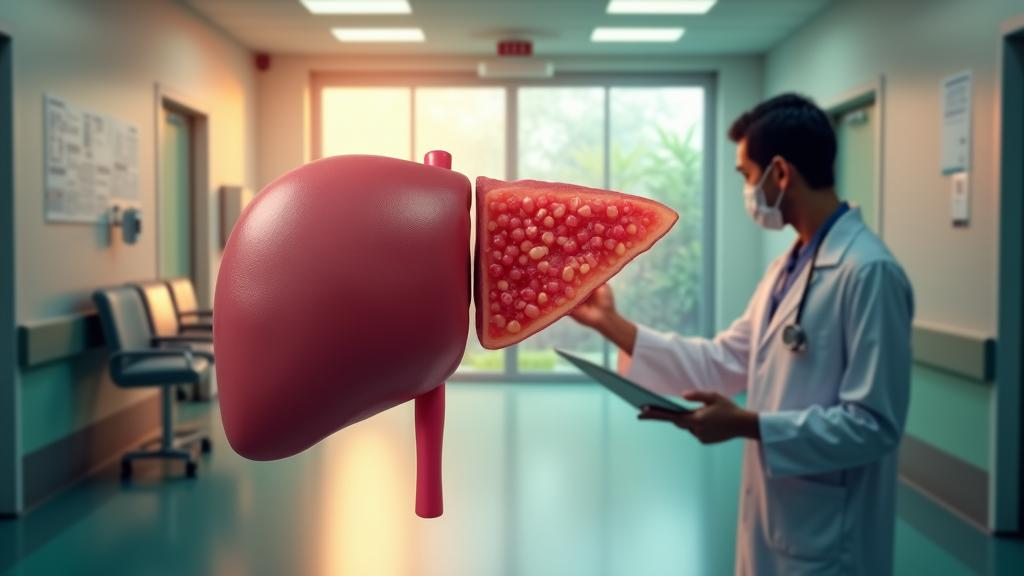Liver cirrhosis is a serious health condition affecting millions worldwide. It arises from long-term liver damage and can lead to life-threatening liver cirrhosis complications. Early detection and swift action can make a big difference in liver cirrhosis treatment options. This article aims to educate about early detection and prevention to help people make informed choices.
Recognizing the Early Symptoms and Diagnosis of Liver Cirrhosis
Understanding the early symptoms of liver cirrhosis can help catch the disease early. Common signs include yellowing of the skin or eyes, known as jaundice, and extreme tiredness. These liver cirrhosis signs might vary from person to person, making it tricky to catch at times.
Some other signs to watch for are: – Loss of appetite – Nausea – Swelling in the legs or abdomen
Regular health check-ups improve chances of liver cirrhosis diagnosis early. Doctors might recommend blood tests, imaging, or even a liver biopsy to confirm. Recognizing symptoms and getting timely medical advice is crucial.
Lifestyle Modifications: Diet and Exercise in Liver Cirrhosis Management
Lifestyle choices have a huge impact on liver cirrhosis prevention and also on managing it. A healthy lifestyle can not only stave off symptoms but also slow down the disease.
Diet Plans
A well-planned diet plan for liver cirrhosis can help maintain a healthy liver. Here’s what could be considered: – Eat plenty of fruits and vegetables. – Stay away from alcohol. – Limit foods with high salt content. – Opt for lean proteins like fish and chicken.
Exercise Routines
Appropriate exercise can help liver cirrhosis prevention. Gentle physical activity, like walking, jogging, or cycling, can make a big difference in improving overall health. Exercise helps control weight and boosts mood, both beneficial for liver health.
Current Medical Advances and Treatment Options for Liver Cirrhosis
Recent advancements offer hope for those seeking latest liver cirrhosis treatments. Many liver cirrhosis treatment options are available today, which focus on managing symptoms and slowing progression.
Medicines
Medications for liver disease manage symptoms and improve liver function.
- Antiviral Drugs: These treat hepatitis causing liver damage.
- Diuretics: Help reduce fluid build-up in the body.
- Beta-blockers: These manage blood pressure in veins of the liver.
Surgical Interventions
In advanced cases, surgeries like transplantation might be necessary. These interventions give a new lease on life to patients who meet eligibility criteria.
Staying Informed
Staying up to date on liver cirrhosis treatment options is vital. Awareness leads to timely interventions, improving both life quality and expectancy.
In conclusion, tackling liver cirrhosis involves understanding its symptoms, making lifestyle changes, and staying abreast of latest liver cirrhosis treatments. Through early diagnosis and proper management, it is possible to live a healthier, longer life even with this condition. Every individual should be proactive in securing their liver health.
